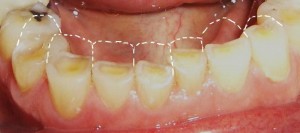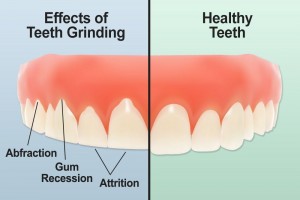Teeth grinding
Bruxism includes various behaviours like:-
- Gnashing of teeth
- Grinding of teeth
- Clenching of teeth
- Gritting of teeth
Signs of teeth grinding-
- A chipped tooth
- You have a headache when you wake up
- TMJ pain disorder
- Chronic grinding of teeth
- Pain in jaws
- Loosening of teeth from the gums
- Losing of teeth
- Fracturing of teeth
- Wearing away of teeth and enamel
- Receding gums/Recession
- Recurring headaches
- Tooth pain
Treatment which really help include:-
- Using a warm, wet washcloth on the jaw in front of earlobe
- Massaging jaw muscles, the neck, and face to relieve tension on trigger points
- Getting physical therapy
- Doing exercises to relax the jaw
- Using muscle relaxants to relax the jaw
Treatments for bruxism designed to reduce symptoms or get rid of teeth grinding include:
- Reducing stress
- Don’t open your mouth too wide.
- Drinking more water
- Getting more sleep
- Not chewing gum or on other objects as it allows your jaw muscles to get more used to clenching and makes you more likely to grind your teeth.
- Consciously relaxing the face and jaw throughout the day
- Buying a teeth grinding mouth guard
- Avoiding alcohol, which increases the urge to clench the teeth
- Avoiding caffeine, which can make you jumpy and tense
- Do not chew on pencils or pens or anything that is not food.
- Train yourself not to clench or grind your teeth.
- If you notice that you clench or grind during the day, position the tip of your tongue between your teeth. This practice trains your jaw muscles to relax.
The most popular and widely used of these solutions is mouth guards which are custom fabricated according to your mouth.





